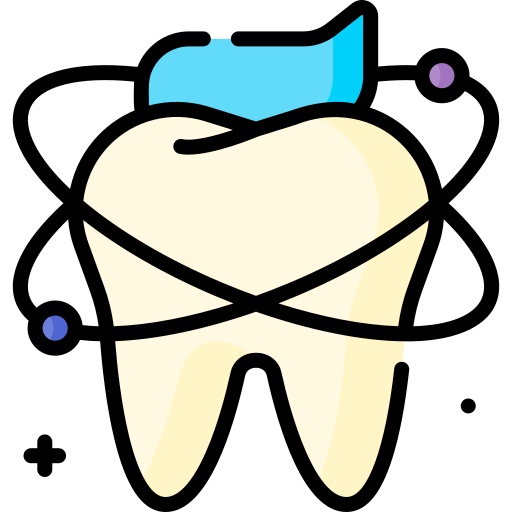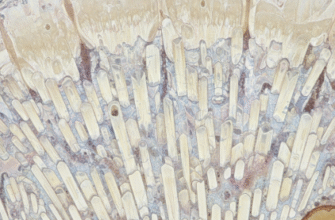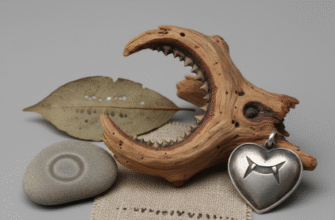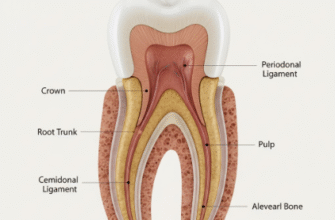A radiant smile isn’t just about looking good; it’s a sign of good overall health. While your dentist plays a crucial role in keeping your pearly whites in top shape, there’s a whole world of natural habits and simple practices you can weave into your daily routine to support strong teeth and healthy gums. Think of these as your personal toolkit for maintaining oral wellness, working in harmony with professional care. It’s about making small, consistent efforts that add up to big benefits over time.
Fueling Your Smile from the Inside Out
What you put into your body has a direct impact on your teeth and gums. It’s not just about avoiding the “bad stuff,” but also about actively choosing foods that nourish and protect your oral environment.
The Sweet Surrender: Taming the Sugar Monster
This one’s no secret, but it bears repeating. Sugary foods and drinks are a primary culprit in tooth decay. Bacteria in your mouth feast on sugars, producing acids that erode your tooth enamel. This doesn’t mean you can never enjoy a treat, but moderation is key. Be mindful of hidden sugars in processed foods, sauces, and even some “healthy” snacks. Rinsing your mouth with water after a sugary indulgence can help wash away some of the culprits.
Nature’s Toothbrushes: Crunchy Fruits and Veggies
Think of crisp apples, crunchy carrots, and firm celery sticks as nature’s own dental hygienists. Chewing these fibrous foods physically helps to scrub away plaque and food particles from your teeth. Beyond the mechanical cleaning action, they also stimulate saliva production. Saliva is your mouth’s natural defense mechanism, neutralizing acids and washing away debris.
- Apples: Their fibrous texture cleans teeth and stimulates gums.
- Carrots: High in Vitamin A, crucial for enamel strength, and their crunchiness boosts saliva.
- Celery: Its stringy nature acts like natural floss, and it’s packed with water.
Building Blocks: Calcium and Phosphorus
Your teeth are primarily made of minerals, and calcium and phosphorus are the star players in keeping them strong and resilient. Dairy products like milk, cheese, and yogurt are well-known calcium sources. But if dairy isn’t your thing, plenty of other options exist, including leafy green vegetables (kale, spinach), almonds, canned salmon or sardines (with bones), and tofu. Phosphorus is abundant in protein-rich foods like eggs, fish, lean meat, nuts, and beans.
Vitamin C: The Unsung Hero for Healthy Gums
Healthy gums are the foundation for healthy teeth. Vitamin C plays a vital role in maintaining the integrity of your gum tissue and can help protect against gingivitis, the early stage of gum disease. You can find this essential vitamin in citrus fruits (oranges, lemons, grapefruits), berries (strawberries, blueberries), bell peppers, broccoli, and kiwi. A diet rich in these foods contributes to robust gum health, ensuring your teeth have a strong support system.
Hydration is Key: The Power of Plain Water
Never underestimate the importance of good old H2O for your oral health. Drinking plenty of water throughout the day helps to rinse away food particles and bacteria, preventing them from settling on your teeth. It also keeps your mouth moist, which is essential for saliva production. Saliva, as mentioned, is crucial for neutralizing harmful acids and beginning the digestion process. Swishing water around your mouth after meals and snacks is a simple yet effective habit.
Important Note: These natural approaches are intended to support your oral health and should complement, not replace, professional dental care. Regular check-ups, cleanings, and advice from your dentist are absolutely essential for diagnosing, preventing, and treating dental issues. Always discuss any significant changes to your oral care routine with your dental professional.
Natural Oral Hygiene Practices to Explore
Beyond brushing and flossing with conventional products, several traditional and natural methods can enhance your oral care routine. Many of these have been used for centuries in various cultures.
The Ancient Ritual of Oil Pulling
Oil pulling is an age-old Ayurvedic practice that involves swishing a tablespoon of edible oil (commonly coconut, sesame, or sunflower oil) in your mouth for about 10-20 minutes, then spitting it out. The idea is that the oil “pulls” bacteria and toxins from the mouth. While scientific evidence is still catching up to fully validate all traditional claims, many people report a cleaner feeling mouth, fresher breath, and even whiter teeth. How to do it:
- Take about one tablespoon of oil (coconut oil is popular due to its lauric acid content, which has antimicrobial properties).
- Swish it gently around your mouth, pulling it between your teeth. Try not to swallow it.
- Start with 5 minutes if 15-20 feels too long, and gradually increase the time.
- Spit the oil into a trash can (not the sink, as it can solidify and clog pipes).
- Rinse your mouth thoroughly with water and then brush your teeth as usual.
It’s best done on an empty stomach, often first thing in the morning.
DIY Tooth Powders and Natural Pastes
If you’re looking to reduce your exposure to certain ingredients in commercial toothpastes or just want to try something different, natural tooth powders can be an option.
Baking Soda: Sodium bicarbonate is a mild abrasive that can help remove surface stains and neutralize acids. However, it should be used sparingly and gently, as overuse could potentially be abrasive to enamel over time. Some people mix it with a little water to form a paste.
Herbal Ingredients: Certain herbs have traditional uses in oral care.
- Neem: Known for its antibacterial properties, neem twigs have been used as traditional toothbrushes in some cultures. Neem powder can be an ingredient in DIY tooth powders.
- Clove: Clove oil is famous for its ability to temporarily relieve toothache due to eugenol, which has analgesic and antiseptic properties. Powdered clove can be added to tooth powder blends.
- Mint/Peppermint: Offers a fresh taste and has mild antibacterial qualities.
Activated Charcoal: This has gained popularity for its supposed whitening effects, as it’s highly porous and can bind to substances. However, its abrasiveness is a concern for long-term enamel health. If you choose to use it, do so very occasionally and with extreme gentleness. Consult your dentist before using charcoal regularly.
Refreshing Herbal Mouth Rinses
Instead of alcohol-based commercial mouthwashes, which can sometimes dry out the mouth, you can create your own gentle herbal rinses.
- Sage Tea: Sage has natural antiseptic and astringent properties. Brew a strong sage tea, let it cool, and use it as a mouth rinse.
- Peppermint Tea or Diluted Peppermint Oil: Offers a refreshing blast and can help combat bad breath. If using essential oil, ensure it’s food-grade and heavily diluted (1-2 drops in a full glass of water).
- Tea Tree Oil (Highly Diluted): Known for its potent antimicrobial effects. However, it must be highly diluted (1-2 drops in a glass of water) and should not be swallowed. Always use with caution and consider a patch test first.
Don’t Neglect Your Tongue
Your tongue can harbor a significant amount of bacteria, contributing to bad breath and potentially impacting overall oral health. Gently scraping your tongue daily, from back to front, using a dedicated tongue scraper (metal ones are often preferred for hygiene and durability) or even the edge of a spoon, can make a noticeable difference in breath freshness and oral cleanliness.
The Art of Mindful Brushing and Flossing
Even with the most natural toothpaste or powder, technique is paramount. Use a soft-bristled toothbrush to avoid damaging your gums and enamel. Brush gently for at least two minutes, twice a day, using small circular or back-and-forth motions to cover all surfaces of your teeth. Don’t forget the gum line. When it comes to flossing, be thorough but gentle, curving the floss around each tooth to effectively remove plaque from between teeth and under the gumline where your brush can’t reach. Natural floss options made from silk or plant-based materials are also available.
Lifestyle Choices for a Lasting Healthy Smile
Your daily habits extend beyond what happens directly in your mouth. Certain lifestyle factors can significantly influence your dental well-being.
Steer Clear of Tobacco
This is a big one. Smoking or using any form of tobacco wreaks havoc on your oral health. It stains teeth, causes persistent bad breath, significantly increases your risk of gum disease (a leading cause of tooth loss), and is a major risk factor for oral cancer. No amount of natural care can counteract the damaging effects of tobacco. Quitting is one of the best things you can do for your teeth, gums, and overall health.
Manage Stress Levels
Believe it or not, stress can impact your teeth. Many people clench or grind their teeth (a condition called bruxism) when stressed, often unconsciously, especially during sleep. This constant pressure can wear down enamel, cause jaw pain, and even lead to cracked teeth. Practicing stress-reduction techniques like meditation, yoga, deep breathing, or even just ensuring you get enough sleep can help. If you suspect you grind your teeth, talk to your dentist; they might recommend a nightguard.
Treat Your Teeth with Respect
Your teeth are designed for chewing food, not for opening packages, biting fingernails, or chomping on ice or hard candies. Using your teeth as tools can lead to chips, cracks, and other damage. Be mindful of very hard foods that can put excessive stress on your teeth. A little care goes a long way in preventing accidental damage.
Incorporating these natural strategies into your life isn’t about an overnight transformation but rather about cultivating a long-term commitment to your oral health. These practices, combined with regular professional dental care, can help you maintain a healthy, confident smile for years to come. Listen to your body, find what works for you, and enjoy the journey to a naturally healthier mouth!








